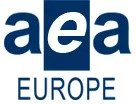In the midst of global change, accelerated by the pandemic, the educational landscape is rapidly evolving. In this interview, Dr. Mary Richardson, a Professor of Educational Assessment at the Institute of Education, University College London (UCL), sheds light on the challenges and opportunities presented by this shift.
For education, the pandemic accelerated the shift towards online learning and assessment. While this transition offers potential, it is riddled with challenges like ensuring equitable access to quality technology. Dr. Richardson points out how in the UK, the inconsistency in technological access, especially within the state system, poses significant barriers to the full embrace of online assessments. She is keen on exploring the trustworthiness of assessments and how various stakeholders perceive them. Dr. Richardson appreciates the symbolism of “bridges” in the AEA-Europe conferences, emphasizing connectivity. However, events like Brexit have made connections challenging, adding to the complexities of social, political, and technical spheres in education.
Dr. Richardson’s interest in the educational assessment stems from her technical background working in an awarding body and with other policy teams, giving her an insight into how the educational system operates. She’s concerned about misleading narratives surrounding assessment results, citing recent speculations about A-Level outcomes in England. Such speculations, often unsupported by concrete data, lead to the politicization of educational results, which in turn can result in blame games targeting teachers and schools. Stressing that no assessment system, especially high stakes tests, is flawless, Dr. Richardson’s primary aim is fostering a comprehensive understanding of this system to facilitate constructive conversations about its strengths and weaknesses. She believes that meaningful change in education, especially regarding assessments, is a prolonged endeavour, taking possibly decades. One significant issue is the weak level of “assessment literacy” among teachers, where many are not adequately educated about high-stakes assessments they engage with. This gap in understanding contributes to undue blame on teachers. Boosting teachers’ confidence and understanding in assessments can lead to better student support. Additionally, there is a need to educate parents, employers, and the public about assessments and what they genuinely signify. Dr. Richardson emphasizes that a single grade at a particular time shouldn’t pigeonhole a student’s abilities or potential, as everyone is able to grow. Some assessment systems are very narrow and constraining for the students that are operating within them, which not only confines students but can also diminish their self-perception and prospects.
Dr. Richardson accentuates the value of consistent reflection in the assessment domain, emphasizing the role of diverse voices in enriching educational discourse. While the assessment world has an underlying economic aspect, ethical business practices and attentive listening to stakeholders are pivotal. She introduces the concept of “assessment dysmorphia,” where individuals evaluate their worth purely based on grades, skewing self-perception. This misrepresentation can be harmful, suggesting that the fear of failure and making mistakes renders individuals vulnerable and unprepared for real-world challenges. Building trust, she argues, involves taking incremental steps, embracing experimentation, and learning from errors.
Drawing inspiration from historical figure Thomas Paine, Dr. Richardson emphasizes the potential of Artificial Intelligence (AI) in transforming education and assessment. While Paine emphasized building on existing foundations rather than starting entirely anew, she highlights how AI can both build upon and revolutionize traditional methods. Despite prevalent apprehensions about AI, she has been delving into its implications, especially in how tutors can use large language models in their teaching and create assessments with the students. Dr. Richardson champions enhancing “assessment literacy” and sees AI as a transformative tool capable of automating tedious tasks, like manual marking. At her institution, UCL, AI is not shunned as a potential cheating tool but embraced to foster innovative teaching and assessment methods. By actively integrating AI, they are experimenting with and reflecting on its applications. Dr. Richardson believes that the tumultuous changes brought on by the pandemic present a unique opportunity to reshape the educational landscape, echoing Paine’s sentiment that we always have the capacity to begin anew.
She expresses her genuine excitement and honor to be delivering her keynote at the AEA-Europe conference in Malta in November. She encourages everyone to attend her talk, emphasizing her deep passion for assessment and her mission to prompt people to keep thinking differently about assessment. She welcomes challenging questions and sees her keynote not as a concluding discussion but as a platform to ignite many new conversations about educational assessment.
Dr. Mary Richardson leads an MA in Assessment and has a keen interest in the philosophical issues in assessment. Her recent book, published by UCL Press in 2022, delves into how the public understanding of assessment needs improving, and she has an upcoming work in 2023 on decolonisation and assessment for the Journal of Philosophy of Education. Additionally, Dr. Richardson is spearheading the national reporting for TIMSS2023 for England and is collaborating with the Centre for Holocaust Education (UCL) examining how teachers might assess curriculums focused on the Holocaust.

